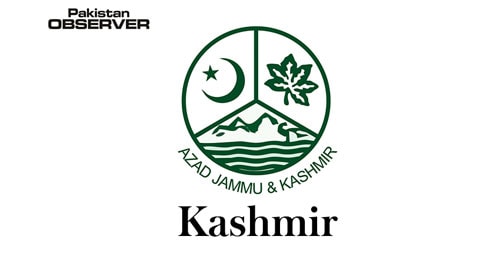Sheikh Fakhar-e-Alam
Russell Tribunal on Kashmir held its session in Sarajevo, Bosnia, recently which highlighted Indian mayhems in the illegal Indian occupied Jammu and Kashmir (IIOJK).
The judges of the tribunal deplored that the Israeli model of settler colonialism is being repeated in IIOJK.
It was also observed that the Kashmir dispute must be seen in a global context and the ground situation in IIOJK is a serious matter of concern for the whole of humanity as well. India had remunerated a mili-tary, political, economic, social, cultural, and moral war against the Kashmiris and used black laws as weapons of war.
Kashmir Civitas, a Canadian registered NGO, partnered with the World Kashmir Awareness Fo-rum, Bertrand Russell Peace Foundation (Notting-ham, UK), the Permanent People’s Tribunal of Bo-logna, Italy, Nahla (Center for Education and Re-search), the Center for Advanced Study in Sarajevo, International University of Sarajevo (IUS) and Al-jazeera Balkans, held the first Russell Tribunal on Kashmir.
The tribunal aimed to put forward the facts on the brutalities of Indian forces in Kashmir. It also replicated the significance and impact of the Russell Tribunal on Vietnam that gained worldwide press coverage.
This tribunal brought together key global personalities, academics, and celebrities to highlight the ongoing genocide and political oppression of the people in IIOJK. Notables and illustrious global personalities were present to listen to the proceed-ings, participate and act as citizen judges.
The Rus-sell Tribunal was also attended by the Bosnian community with over 70 foreign delegates.
The specific focus of the tribunal was on 4 the-matic areas which included firstly, Genocide, in-cluding a discussion on the Jammu Genocide in which an estimated 230,000 – 500,000 people were killed. Secondly, de-Colonization, Kashmir is not a secessionist/separatist movement, but a de-colonial movement.
Thirdly, settler-colonialism like land-grabs, coercive patriotism, etc. Fourthly, crimes Against Humanity, mass graves, rape as a weapon of war, and the ever-present threat of nuclear war in this contested region.
The basic facts of the Kashmir case presented in front of the tribunal were that Kashmir is a disputed territory, a fact established by 18 United Nations resolutions.
It cannot be claimed legitimately by any country or claimed as an integral part until the time that the people of Kashmir have been granted the right to freely, and without fear, express their opin-ion in the referendum that they were promised and that the UN continues to urge.
Dr. Mubeen Shah, former President of Kashmir Chamber of Commerce, spoke as a witness at the Tribunal saying, “India is on a major propaganda offensive to convince the world that its brutal occu-pation and repression in Kashmir are part of the epic battle against Muslim terrorism. An epic battle that is completely manufactured to justify war, occupa-tion, genocide.”
The participants of the Russell Tribunal on Kashmir fell into tears listening to the accounts of the Kashmiri women who had been suffering the “weaponized rape” by the Indian Occupation Forces which used it as their “primary weapon.”
Russell Tribunal reaffirmed the primacy of in-ternational law as the basis for solving the Kashmir conflict.
It also intended to raise awareness of the responsibility of the international community to prevent ongoing crimes against humanity.
A panel of judges heard the proceedings and, thereafter, finalized a report that will be distributed to UN agencies, EU parliament, and other world bodies and governments.
Finally, the tribunal has given the following conclusions, Firstly, found serious indications of constant restrictions on freedoms and gross human rights violations, including mass crimes, mass rapes, and other crimes against humanity.
These crimes seem to meet the definition of genocide. Secondly, international institutions and human rights tribunals urgently open cases and examine these allegations, and prosecute those responsible for violations. Thirdly, the reports suggest that the government of India, the Indian Army, and the Indian Intelligence Service are responsible and this requires further investigation”.
Thirdly, the tribunal offered an open invitation to the world public to visit Kashmir and report on the state of freedoms and human rights.
The Hindutva fascist ideology had swept Indian political institutions and society and concocted a plan to enforce a genocidal demographic change in IIOJK.
The Chairperson of Peace and Culture Or-ganization MushaalMullick termed it a wonderful initiative to highlight war crimes committed by Indian forces in IIOJK.
Undoubtedly, the serious-ness of this tribunal is in the transparent, democ-ratic, and rigorous scientific methods it has used to put forward its case against the Indian state.
This is just the beginning of a difficult and thoughtful proc-ess to uncover the truth. The proceedings of the Russell Tribunal, have left with serious concerns about crimes, which appear to have been carried out on a massive scale.
[The writer is Islamabad based PHD Media studies fellow, tweets @ShFakharA and can be contacted at [email protected]]









